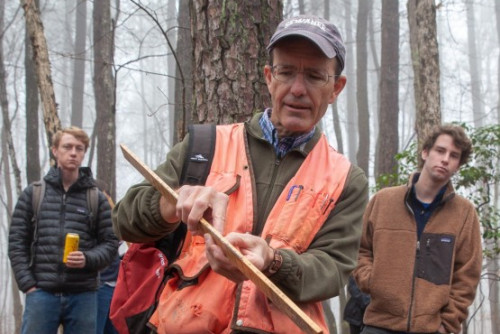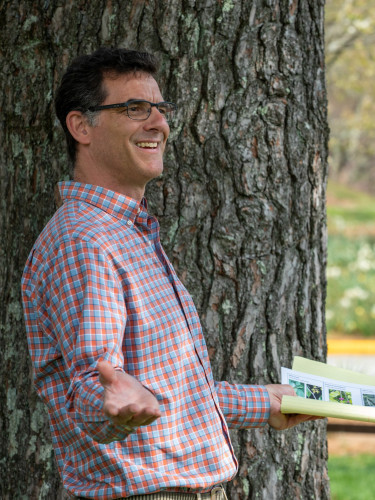Forestry blends the social and natural sciences. Foresters are problem solvers. As a forester, you will work with forests and the people who depend on them. Foresters seek to balance human benefits from forests and to sustain ecological functions.
Why study forestry at Sewanee?
Forestry students examine the important features, processes, and issues of forested areas that allow populations to thrive. Why study forestry here on the Mountain?
The Domain’s 13,000 acres is a living laboratory. Here at Sewanee, you will be a student of the land. The Cumberland Plateau offers a stunning amount of diversity, so you’ll never want for exploration. Topics include major tree species, forest biology, tree structure and function, silviculture, fisheries science, and U.S. forest policy and law. You will work closely with faculty, conduct research, and produce lab reports of your discoveries.
FIRST DESTINATIONS: Forestry MAJORS
Sewanee graduates secure positions in a variety of fields. Some you would expect, others are a bit of a surprise. Sewanee prepares you for your profession and your passion. Below is a sampling of recent graduates' first jobs.
- Forestry technician, Bureau of Land Management, Kremling, Colorado.
- Land manager, Forestry Consultants, Aiken, South Carolina.
- Forestry technician (fire suppression), U.S. Forest Service, Delores, Colorado.
Guiding principles
- Forestry is inherently interdisciplinary. Therefore, Forestry major integrates traditional forestry coursework in EES with elective courses in Biology, Chemistry, Economics, Politics, Mathematics, and the Humanities.
- Forestry seeks to ethically balance human benefits from forests with healthy ecological function.
- Foresters serve the resource and society best when they continuously educate themselves by engaging with the forest and other professionals in the discipline. Faculty model these values by providing students opportunities to interact with other practicing professionals through field trips and speakers, internships, extracurricular events, and professional meetings.
- Opportunities for collaborative work, such as team projects and capstones, should model professional and ethical behaviors and inspire a commitment to maintain these behaviors as citizens of a community and profession.
- Students will learn about historical and traditional uses of forests, as well as how natural resource use and policies have evolved over time to reflect changes in and include more cultural perspectives.
- Students will learn to recognize that values of and approaches to forest management differ among stakeholders and that these groups may be impacted differently by policy and economic decisions. Moreover, open civil discourse and promotion of science-based practices flourish when students are exposed to faculty, professionals, and stakeholders representing a diversity of disciplinary and philosophical perspectives.
- Students will learn through a strong place-based emphasis on our 13,000-acre forest to value forests not just as resources, but also as inherently complex systems that are essential to a healthy biosphere.







